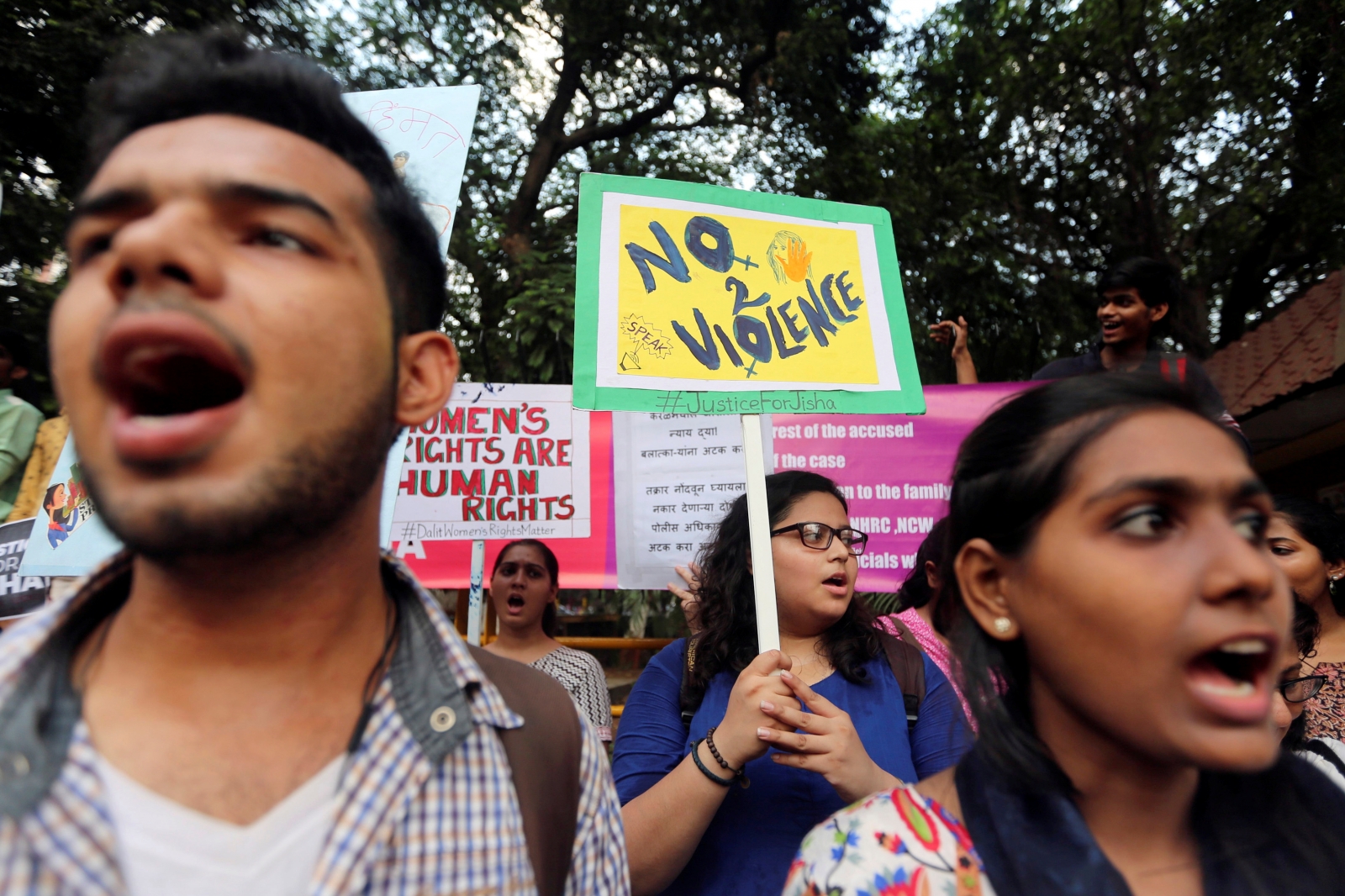Indian doctors still use banned 'two-finger test' to check if rape survivors are lying
The practice is considered unscientific and a violation of the victim's privacy.
Doctors in India are still performing the so-called "two finger test" on alleged rape victims, despite a ban on the practice.
The test allows doctors to inspect the hymen of women to verify rape claims. It is also supposed to test vaginal laxity and decide whether the victim frequently has sexual intercourse.
The practice is considered unscientific and a violation of the victim's privacy. It was outlawed in India in 2014.
At the time, the ministry of health introduced guidelines stating the test should not be used to ascertain whether a woman had been raped or not. Internal vaginal examinations can be still carried out in specific cases, such as to check for infection or injury, unrelated to rape.
"An intact hymen does not rule out sexual violence, and a torn hymen does not prove previous sexual intercourse," the ministry said.
However, this has not sheltered alleged rape survivors from the humiliating treatment in the country, where sexual violence is rampant and perpetrators often go unpunished.
"The Supreme Court has held that the finger test should not be used against the rape survivor and that whether she is 'habituated to sexual intercourse' or not is irrelevant. So it's not just the guidelines but also the Court's rulings," Jayshree Bajoria, researcher at Human Rights Watch (HRW), told IBTimes UK.
Just months after the the ban was implemented, hundreds of protesters poured into the streets of Madhya Pradesh state after the test was carried out on a 16-year-old alleged rape victim.
One year later, rape survivor Kajal was subjected to the humiliating treatment after she was gang-raped by the roadside by an acquaintance and his two male friends.
The woman, who was later abandoned by her husband and family, was also questioned on why she had left her house in the evening, suggesting she was to blame for what had happened to her.
"The finger test is still commonly used by doctors conducting forensic examinations of rape survivors to make observations such as she is 'habituated to sex,'" Bajoria said.
"The guidelines have not been adopted by all the states in India, since health is a state matter. And even the states that have adopted them have failed to implement them effectively."
A June 2016 report by India Today said the state of Bihar "continued to conduct the test". The investigation followed the case of an alleged rape survivor who was subjected to the practice, after which doctors "ascertained that there was no rape".
Stigma




Kajal's story is not an isolated episode. Hers is part of an in-depth report by Human Rights Watch, entitled 'Everyone Blames Me', on sexual violence and lack of service and support for rape survivors in India.
Rape survivors in the country are often alienated by the community due to a stigma surrounding sexual violence. Sometimes victims are blamed for the assault and, in case the rapist is a known person to the victim, the unlawfulness and violence of the act is put into question.
"The families may be forced to relocate. Absence of any support services especially psychosocial counseling in the face of this stigma can leave them further traumatized," Bajoria said.
"India has made progress in breaking the culture of silence around the issue of sexual assault and rape since 2012 and more women are speaking out today. However, the system is not responding to their needs in the way it needs to whether it be the police, the doctors, the courts, or other support services. So much more action is needed to ensure these systems work, and monitoring mechanisms must be put in place to ensure there is accountability," she continued.
"At the same time, much has to be done to alter mindsets, challenge entrenched patriarchal structures. Gender sensitisation training of police, doctors, judicial officials must be done regularly and there should be a process to review these training to check for actual progress."






















